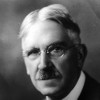“ If two men are united in society, who have the same interests, and to a certain extent the same opinions, but different characters, different acquirements, and a different style of civilization, it is probable that these men will not agree. ”
Alexis de Tocqueville, Democracy in America (1835). copy citation
| Author | Alexis de Tocqueville |
|---|---|
| Source | Democracy in America |
| Topic | society civilization |
| Date | 1835 |
| Language | English |
| Reference | |
| Note | Translated by Henry Reeve |
| Weblink | http://www.gutenberg.org/files/815/815-h/815-h.htm |
Context
“The former, with a greater degree of activity, of common-sense, of information, and of general aptitude, has the characteristic good and evil qualities of the middle classes. The latter has the tastes, the prejudices, the weaknesses, and the magnanimity of all aristocracies. If two men are united in society, who have the same interests, and to a certain extent the same opinions, but different characters, different acquirements, and a different style of civilization, it is probable that these men will not agree. The same remark is applicable to a society of nations. Slavery, then, does not attack the American Union directly in its interests, but indirectly in its manners.
e
[ Census of 1790, 3,929,328; 1830, 12,856,165;”
source



